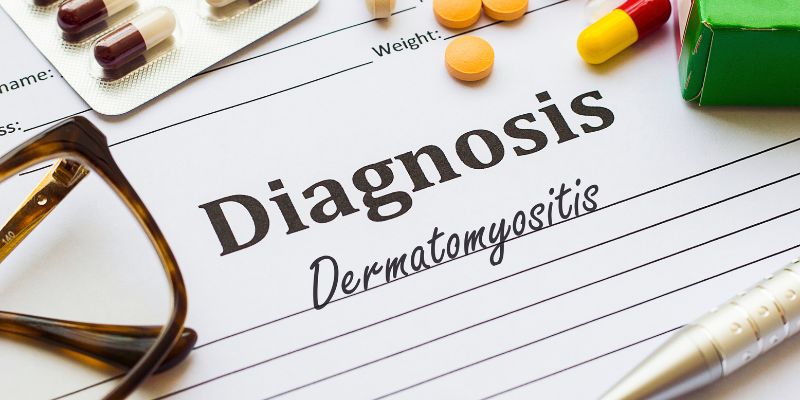Is it Depression or Just Teen Mood Swings: Understanding the Key Differences
Adolescence is a changing period. Teenagers go through many difficulties and feel fresh emotions. Teenagers experience mood fluctuations quite naturally. However, occasionally, these emotional swings transcend what might be expected. Teenagers who experience weeks of sadness, anger, or hopelessness could be showing symptoms of depression. One should know the difference between serious depression and typical teenage mood swings.
Early identification and appropriate assistance can change things. The main distinctions will be discussed in this article. You will learn to see the symptoms, determine the causes, and develop useful strategies for overcoming these difficulties. Knowing what to search for will benefit someone you know or yourself. Let's examine the specifics and learn what distinguishes sadness from regular mood fluctuations.

What Are Normal Teen Mood Swings?
As usual, throughout their development, teenagers go through mood swings. Usually short-lived, these changes occur rapidly. One minute, a teen can be happy; the next, they might be annoyed. Many times, these mood swings are influenced by hormonal fluctuations, academic pressure, and social events. Teens may act differently during mood swings. They may become annoyed or agitated, have brief flashes of euphoria or despair, or sometimes lose interest in everyday tasks. Teens might also argue with teachers, peers, or parents.
Of these mood fluctuations, most are situational. Mood swings might be brought on, for instance, by a disagreement at home, a poor mark at school, or a conflict with a friend. Usually, though, these emotions are fleeting. Most teenagers can bounce back fast after a few hours or a day. A natural aspect of adolescence is normal mood fluctuations. Teenagers often find solace in social events, pastimes, or even little chores. These encounters enable people to recover and sort their feelings swiftly.
Why Do Teens Have Mood Swings?
Teenagers' mood swings mostly stem from hormonal changes associated with puberty. These developments influence teenagers' perspectives, feelings, and responses to events. Teenage mood swings have other elements as well. One of the influences is peer pressure. Many times, teenagers try to fit in with friends, which can lead to anxiety. Their emotions can change with school stress, including homework, grades, and tests. Like friendships or romantic relationships, social transitions can cause delight and distress.
Furthermore, a teen's attitude is influenced by familial issues, including problems at home or lack of support. Usually temporary, most mood swings pass and become better as circumstances do. Talking to friends, hanging out with loved ones, or participating in hobbies and events helps teenagers often feel relief. These interactions and practices enable teenagers to control their emotions better and restore equilibrium in their daily lives.
Recognizing Depression in Teens
Clinical depression is more grave, sometimes referred to as a major depressive illness. It influences a teen's thinking, feelings, and behavior and spans weeks or months. Depression affects daily living, unlike typical mood swings, and is relentless.
Teenagers experiencing sadness could feel:
- Constant sadness or hopelessness
- Extreme irritability and frustration
- Lack of interest in activities they once enjoyed
- Difficulty concentrating in school
These emotions do not fade fast. Rather, they seize control of a teenage life. Getting appropriate therapy depends on early recognition of clinical depression.
Signs of Depression in Teens:
Teenagers' typical symptoms of depression include these:
- Persistent Sadness or Irritability: Usually most of the time, depressed teenagers experience sadness or irritability.
- Loss of Interest in Hobbies: Teens could cease appreciating sports, music, or gaming, among other once-favorite hobbies.
- Changes in Appetite: Teenagers who are depressed could either completely lose their appetite or consume far more.
- Sleep Problems: While some teenagers battle to sleep at all, others with depression sleep too much.
- Fatigue and Lack of Energy: One common indication of depression is tiredness after rest.
- Difficulty Concentrating: Problems concentrating and remembering make schoolwork and homework difficult.
- Thoughts of Self-Harm or Hopelessness: Teens in severe situations may show signs of hopelessness or consider self-harm.

Key Differences Between Mood Swings and Depression
Below are the key differences that can help you distinguish between typical mood swings and clinical depression in teenagers.
- Duration and Consistency: Usually, mood fluctuations pass through really quickly. A teen could be depressed for a few hours but quickly recover. By comparison, depression is more constant and lasts for weeks or months.
- Impact on Daily Life: Normal mood fluctuations usually do not substantially disrupt Teenagers' daily schedules. Teens still attend class, hang around with friends, and engage in extracurricular activities. Conversely, depression compromises family life, friendships, and academic success.
- Emotional Responses: A teen's emotions during mood swings are generally situational. A poor mark or a fight can set off a change in attitude. Depression is a state of unhappiness, pessimism, and dissatisfaction devoid of any obvious cause.
- Social Behavior: Though they dispute occasionally, teenagers with mood swings often seek out social events. Depressed teenagers could cut off friends and relatives. They avoid social events and sometimes would rather be alone.
How to Support a Teen Showing Signs of Depression?
Helping a teen exhibiting depression calls for understanding, patience, and compassion. Open communication is vital. Tell your teen you are there for them and you care. Urge them to communicate their emotions free from concern for criticism. Encourage good behavior that advances mental wellness. Promote consistent sleeping, a healthy diet, and regular exercise. Encourage teenagers to engage in once-favorite hobbies and pursuits.
Engaging in activities they enjoy will help them, whether artistic, video gaming, or sports. Teenagers sometimes require expert assistance. One can get great help from therapists, school counselors, and mental health experts. Effective in treating depression, therapy choices include cognitive-behavioral therapy (CBT). Crucially, it also is family support. Make your house a kind, respectful, patient place. Helping teenagers overcome depression and flourish depends much on the strong support system being shown to them.
Conclusion:
One must understand the differences between serious depression and typical teenage mood swings. Although mood swings are generally temporary and fleeting, depression is chronic and interferes with a teen's daily life. Teenagers overcoming obstacles depend much on early acknowledgment and encouragement. Open communication, good habits, interests, and professional advice can make a great difference. Strong family, friends, and mental health professional support systems provide teenagers the required stability and encouragement. Teens can develop resilience and better their mental health with the correct help and care.












